The Republic of Kiribati is a cluster of 33 islands, nestled in the Pacific Ocean southwest of Hawaii. Known for its coconut palms, pristine waters, and abundant seabird wildlife, Kiribati is home to more than 119,000 people. But the region will be completely gone by 2100. Scientists warn the area may be submerged due to rising sea levels as a result of the climate crisis.
Kiribati isn’t alone. Countries around the world are suffering catastrophic effects due to global warming. Nunatsiavut, the southernmost Inuit community in Canada, is one of the world’s most fastest-warming regions. The Great Barrier Reef’s warming oceans have caused mass coral bleaching. And the Amazon rainforest is being decimated by fires.
And while they live in different parts of the world, the people in these regions share an important commonality: They’re all grieving—not the loss of a person, but the loss of the planet.
In her latest film, The Magnitude of All Things, award-winning director Jennifer Abbott takes viewers on an introspective journey of the psychological and emotional impacts of climate change. The documentary, which will premiere in the U.S. at the 2021 Cinequest Film & Creativity Festival from March 20 through 30, depicts these regions and the impacts that global warming is wreaking on them.
The Magnitude of All Things is interlaced with the director’s own feelings of grief over the loss of her sister, Saille, to cancer in 2008. In the film, Abbott recalls the moment, standing in her garden, that she made the connection between her feelings of sorrow and climate change. She thought it was snowing; however, she realized it was actually ash falling down from a distant forest fire.
“For the first time, I identified grief as an emotion I was feeling for the changing world around us. Prior to that moment, I didn’t really understand that grief is an emotion that’s very present in the world today because of all that we’re losing,” she says.
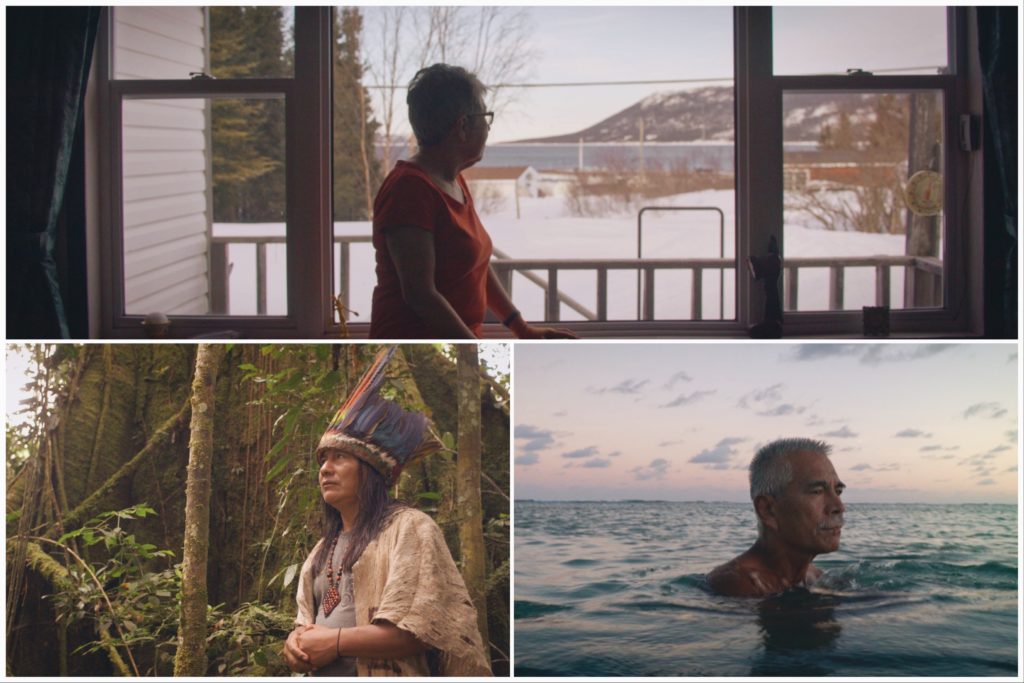
What Is Climate Anxiety and Grief?
Also known as ecological grief or eco-anxiety, climate grief is a psychological response to the climate crisis.
According to Panu Pihkala, adjunct professor of environmental theology at the University of Helsinki, the term “climate grief” can refer to the feelings of loss and anxiety that people experience due to the effects of climate change.
“Climate grief comes in many forms,” Pihkala writes in an op-ed for BBC. “There is the bereavement-like grief and trauma when a climate change-enhanced ‘natural disaster’ hits you or your close ones. Then there is transitional grief: A growing awareness that things are changing, and feelings of grief and sadness because of the many losses involved.”
And according to clinical social worker and psychotherapist Andrew Bryant—who manages the website Climate & Mind—climate grief can also encompass the anticipated loss of something that people value in their local or global environment.
During a phone interview, Bryant says climate grief can impact people in different ways. “It’s specific to the person and what kind of climate issues they’re responding to.”
“Big themes can be grief about the future or the anticipated future of the planet or themselves, their loved ones, and children,” he adds. “And the loss of what they hoped life would be like for them or for people they care about or for humanity.”
Even scientists studying the effects of climate change are being impacted by climate grief. A 2017 study by two geography scientists in Australia found climate scientists suffered anxiety due to their work. The climate scientists found it difficult to “[protect] the psyche from the subject matter of climate change.”
The loss of her sister fueled Abbott’s exploration of the ramifications of climate change on the human psyche. “I’m not sure what surprised me more. The ash following with careless grace or the feeling that rose up within me as it fell. It was grief. I knew it well,” she says in the film.
She explains that despite growing up in a culture that often doesn’t acknowledge the inherent value of the nonhuman world, she was able to recognize grief as an emotion she was feeling about climate change. This was due to the feelings she had experienced after losing her sister.
“Culturally, we don’t tend to associate grief with the loss of the non-human world or a non-human animal. But in that moment, I went, ‘yes, of course grief is an emotion that we feel about climate change.’”
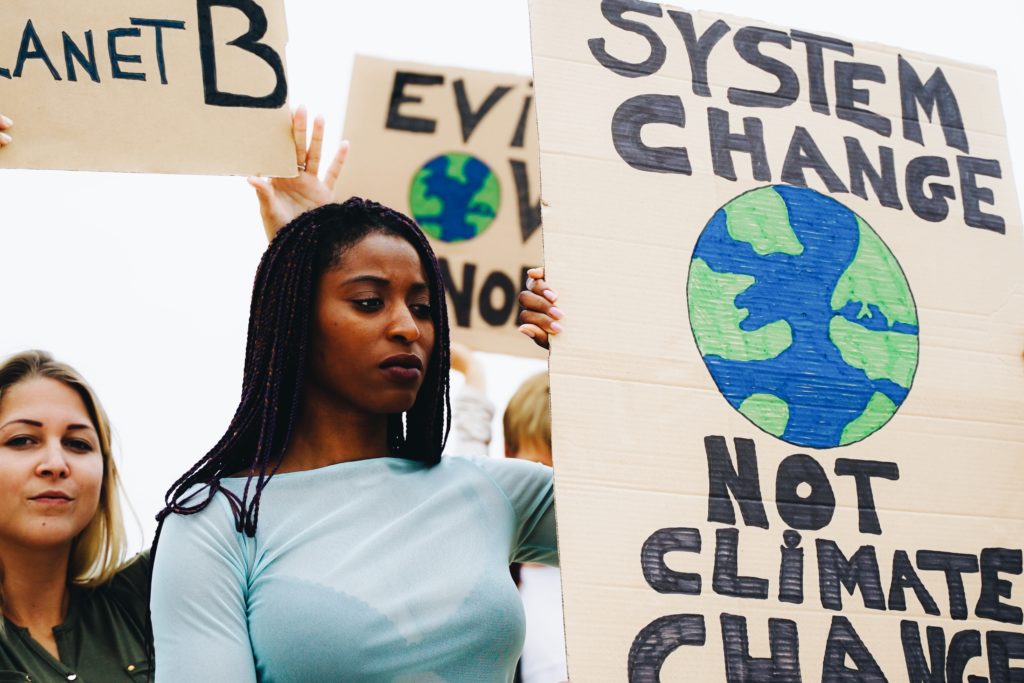
What Are the Symptoms of Climate Grief?
Climate grief isn’t yet diagnosable. But its consequences on mental health can result in clinical disorders like anxiety, post-traumatic stress, depression, and suicidal thoughts.
Symptoms of climate grief may include a sense of worry. It may also bring about feelings of despair, anger, fear, sadness, aloneness, isolation, and guilt, among others. Climate grief may also have physical symptoms.
“Physically, I would sort of link back to typical anxiety symptoms, such as not feeling settled,” Bryant says. “The heart racing when we are exposed to anxiety-provoking information. Some people have panic attacks. Physical tension in the body.”
He also says climate grief symptoms can result in an obsessive fixation on negative news. “So following social media, refreshing feeds and waiting for the next bad story to come out can be a bit of a preoccupation. And this can interrupt one’s life and make it hard to function,” he explains.
The underlying emotion for most is the fear of an uncertain future. “So, what am I gonna do when this happens? What is my life gonna be like? Is it gonna be harder than it is right now?” says Bryant. “It can be fear for other people’s experiences. And like my children—what are their lives gonna be like? What can I do to change that or prevent that?”
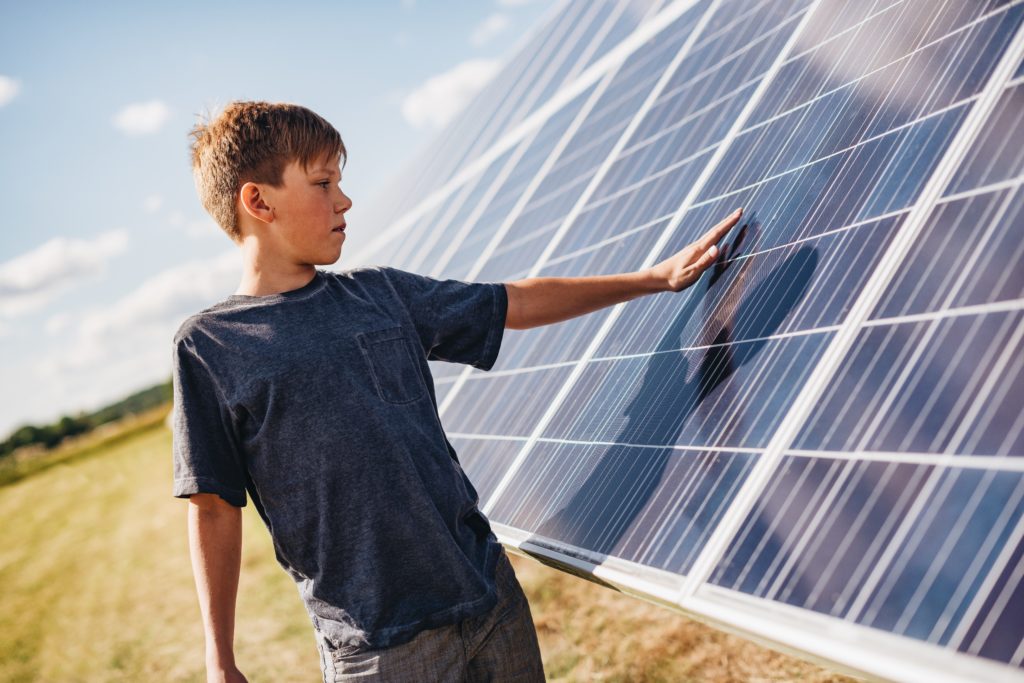
The Emotional Impacts of Climate Change
The psychological and emotional impact that climate change has on the communities featured in the film is palpable.
In the documentary, Sarah Baike—a Nunatsiavut elder and artist—says the land was part of her growing up. She says she never thought there would be a time when the ice would vanish.
“Everyone can relate to the grief of losing a loved one because that is universal,” she explains. “But grief of losing your homeland… I never thought of this as being something that would be lost forever. But it is,” she continues. “You don’t realize how much you’ve lost until you stop and think about it.”
The mental health impacts of climate change—which is mainly brought upon by human activities like oil and mining, deforestation, burning fossil fuels, and factory farming—can be divided into three categories: direct, indirect, and anticipated impacts.
The direct impacts include increased extreme weather events like tropical storms, hurricanes, and floods, as well as droughts, warming oceans, and increasing temperatures. “Those are all documented to have negative health and mental health impacts on communities. Most of the communities being vulnerable communities, marginalized communities, people of color,” Bryant explains.
Children and women are also more severely impacted. A 2020 study by the International Union for Conservation of Nature (IUCN) found the effects of climate change are causing increased violence against women and young girls.
“Environmental degradation now affects our lives in ways that are becoming impossible to ignore, from food to jobs to security,” Dr. Grethel Aguilar, IUCN Acting Director-General, said in a statement. “This study shows us that the damage humanity is inflicting on nature can also fuel violence against women around the world.”
The indirect impacts, such as declines in farming and food availability, also have negative health implications, both physically and mentally. “There’s a lot of these huge impacts that are gonna impact people, mostly outside of rich countries,” Bryant continues. As for the third category, he explains that anticipated climate anxiety arises due to the foreboding feelings about climate change.

Taking Action on Climate Change
In 2018, leading climate scientists on the UN Intergovernmental Panel on Climate Change warned there were only 12 years left to prevent a climate change catastrophe. In order to keep the rise in global temperatures below 1.5 degrees celsius, they said carbon emissions must be reduced by 45 percent by 2030.
Abbott says one of her goals in making the film was exploring the concept of hope amid the climate crisis in a more nuanced way. She says she hopes this may engender action on global warming. “Hope can be a form of denial itself. If we have hope that things are going to be okay, it’s not entirely justified given the current trajectory of warming we’re on. And if we have hope that’s not grounded in science or reality, then people aren’t necessarily willing to make the kinds of sacrifices or take the kinds of risks that this moment of time calls for,” she explains.
Abbott says she believes one reason little progress has been made to mitigate climate change is that people simply aren’t facing the truth that the planet is in danger.
“We’re really not facing the truth of this precipice that we’re standing on. We are standing on the edge of a cliff about to go off of it. We’re not facing that fact,” she says. “I’m really hoping that The Magnitude of All Things, for some viewers, provides them with an opportunity to face those deepest fears and sorrows.”
Coping with the ramifications of climate change on a personal level can be challenging. In 2017, the American Psychological Association released a report on the impact climate change has on mental health. It found the “gradual, long-term changes in climate” can cause a wide range of emotions. These include anger, fear, feelings of powerlessness, and exhaustion.
Because it’s not a diagnosable disorder, there’s usually no socially validating process for managing climate grief. “That’s where people end up feeling alone or feeling isolated and not having a natural process to move through, beyond which they can maybe take action or move on with life or do something that gives them a sense of meaning,” Bryant says.
But there are things people can do to help mitigate symptoms of climate grief.
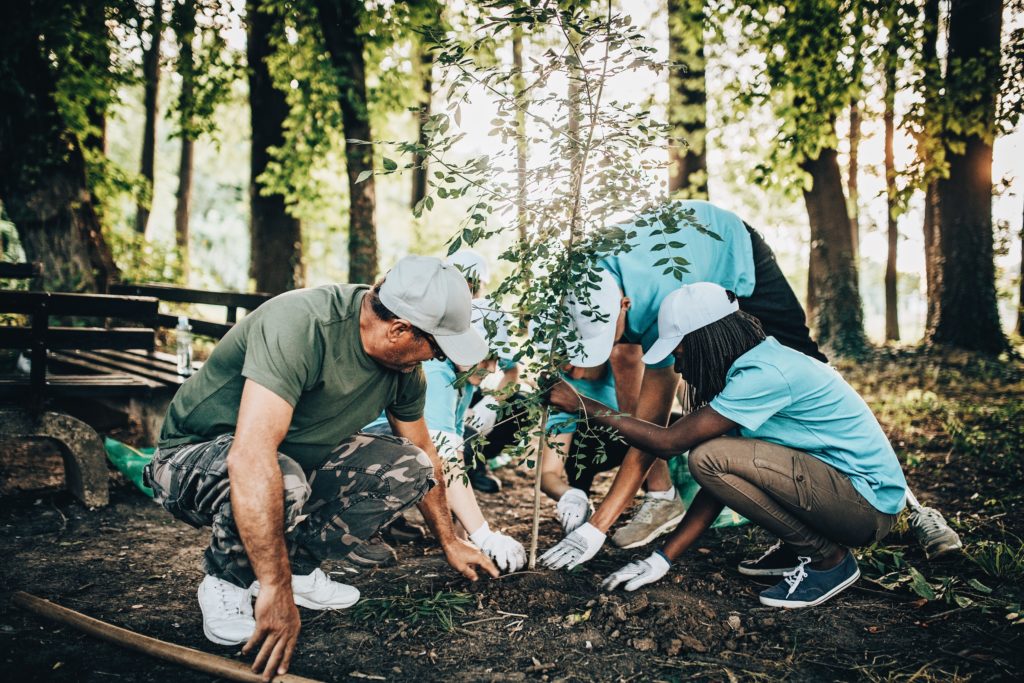
How to Cope With Climate Anxiety and Grief
Those suffering from climate grief may feel anger, despair, guilt, fear, sadness, disorganization, and a number of other emotions.
A 2016 study published in Environmental Research Letters found that, in the U.S., toxic factories and other facilities are disproportionately located in poor, non-white communities. As a result, people of color and marginalized communities are the ones impacted most by climate grief. Unfortunately, BIPOC communities may not have access to the proper resources needed to protect themselves from the health consequences of climate change.
If you or someone you know is experiencing climate grief, here are five things you can do that may help you cope.
Speak with a therapist
Although he’s a therapist, Bryant says therapy isn’t a solution for climate grief. But, he explains, it’s a good place to start and recommends it as a starting point. “It can be an entry point. Once someone has recognized that they’re experiencing anxiety related to ecological crisis or climate change, finding someone to talk to about it is helpful.”
Of course, therapy isn’t cheap. But there are options for free or low-cost counseling. These include Open Counseling and the Anxiety & Depression Association of America. There are also a number of free or low-cost mental health apps like Talkspace and Betterhelp.
Find a supportive community
If you’re unable to speak with a therapist, or simply don’t feel comfortable doing so, simply speaking with someone else who is experiencing the same feelings may be helpful.
“If a person is feeling climate anxiety and does not talk about it with other people or does not have other people around them who share those feelings or express those feelings can be a very isolating experience,” Bryant explains.
There are also climate grief support groups like Extinction Rebellion’s Grief Circle and Climate Psychology Alliance’s Climate Café. Try searching the web for similar support groups in your area. And if you can’t find one, considering starting one of your own.
“The more we can name those feelings, talk about them with other people, be at friends, therapists, colleagues, and then connect with other people who share those feelings,” Bryant continues, “the more likely it is for us to find a role in the world that feels meaningful and feels like it’s making a contribution to change.”
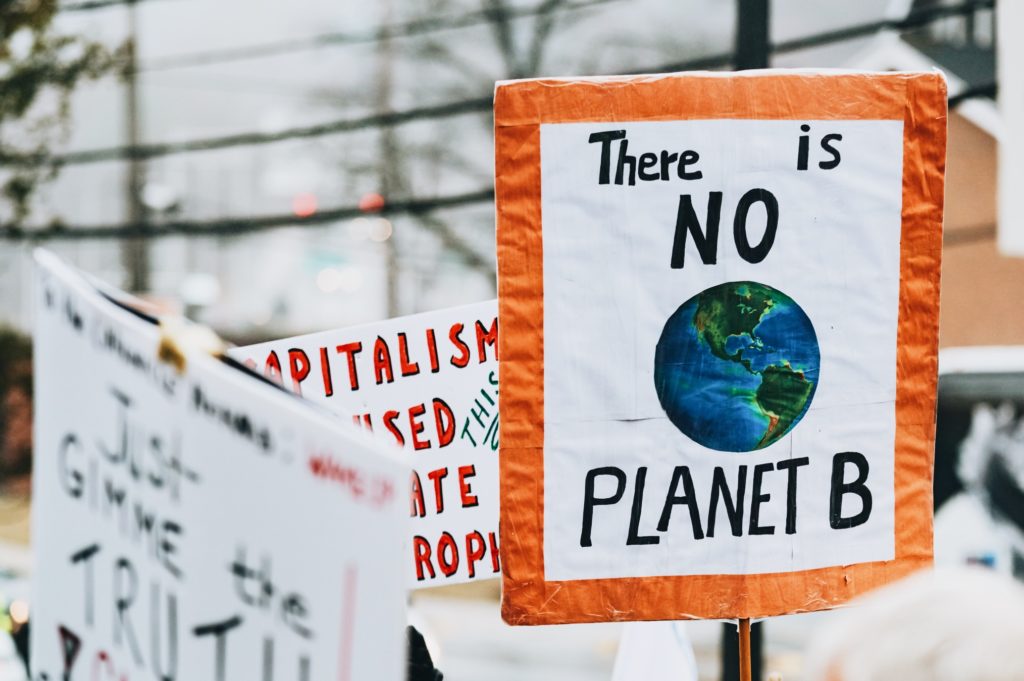
Take action
Actions like protests or even social media activism may also be helpful for some. According to Bryant, this can help give someone experiencing climate grief a sense of meaning and purpose amid the environmental changes that they’re witnessing.
People can also do their part to help mitigate climate change. This includes walking, cycling, or using public transportation instead of driving. You can also reduce food waste, limit air travel, and use less energy at home.
Spend time in nature
Research shows that spending time outdoors may be beneficial for mental health.
According to the American Psychological Association, spending time in nature may help reduce stress levels. It may also increase feelings of happiness and contribute to a sense of meaning and purpose in life.
“It’s a privilege to have access to nature,” Bryant says. “But if we do have the resources, it can be extremely supportive and nourishing and encouraging to recognize the value of the planet and that can spur us towards wanting to protect it.”
Stay informed
Those suffering from climate grief can also help cope with their symptoms by staying informed. The power of information may help in understanding climate change-related events. However, be sure to hold caution against overexposure to media and misinformation. For reliable news to stay better informed, visit media sites like the Associated Press and NPR.
For those looking for additional climate grief resources, please visit ClimateandMind.org. And if you’re experiencing suicidal thoughts, you are not alone. Please call the National (U.S.) Suicide Hotline at 1-800-273-8255. If you’re outside of the U.S., here is a link to a list of international suicide hotlines.


